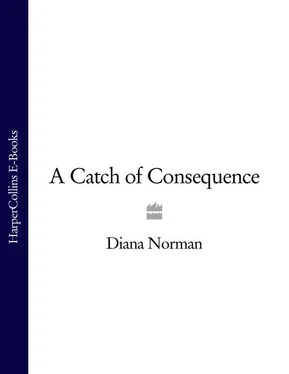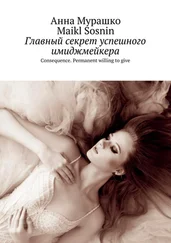But not today. Captains, worried for their cargo, had stood their ships further off where the Sons of Liberty couldn’t board them. They were out in the bay now, like a huddle of white-shawled grannies, until it was safe to come back. Deserted quays waited for them, sticking out into the harbour in protruding, wooden teeth.
She had to feather so that, by standing in the prow, she could negotiate between the detritus that had been thrown in the water during the night: pieces of door, window-frames, the lid of a desk, all of it a hazard to little boats like hers as it was carried out to sea on a combination of current and ebb-tide. A waste. Later on, she’d get Tantaquidgeon to see what he could salvage. Dry it out for tinder.
Lord, it was quiet. As she passed Copp’s Quay, a couple of painted figures that had been lying on it staggered to their feet and slunk off like dogs who knew they’d been naughty. Don’t let the magistrates get thee, boys. From the look of ’em, she’d guess their heads were punishment enough.
And there was Tantaquidgeon waiting for her as he always did, standing on the Roaring Meg’s gimcrack jetty and staring out to sea like the statue of a befeathered Roman emperor.
She was heading towards him when a prickle of movement a hundred yards further on caught her eye. A knot of men on Fish Quay, three, maybe four – it was difficult to see against the reflection of sun on water – a suggestion of furious energy and striped faces. Not all the rioters had gone home to sleep it off, then. No sound from them that she could hear above the call of the swans. One was standing still, keeping watch, while the others threw objects into the harbour as if they hadn’t slaked their revenge even yet. Something heavy had just splashed in, something else now – a hat. Waste again.
With her free hand she shaded her eyes to see who the men were. The one acting lookout was Sugar Bart, recognizable at once by the crutch that did duty for his missing leg. Would be. Always in trouble against authority, Bart.
Mackintosh? What was that shite doing this far north of town? No mistaking his swagbelly, painted or not; she’d seen it too often parading at the head of the South End mob on Guy Fawkes’ Nights. Mackintosh was leader of one of the gangs which took flaming papal effigies and trouble onto Boston’s streets every November 5, indulging in bloody and, sometimes, mortal battles with each other to show their enthusiasm for the Protestant cause.
Couldn’t make out the others.
Sugar Bart had seen her; she saw him stiffen and point. She’d be a blur against the sun. She waved to show she was a friend. A good taverner kept in with her customers, whatever hell they were raising.
Now what? She looked behind her. From her vantage point, Makepeace saw what Sugar Bart couldn’t.
A patrol of armed redcoats from North End fort was marching down the wharves towards Fish Quay, heading for Bart and the Mohawks who, because of the overhang of warehouses, couldn’t see it. The stamp of military boots came crisply to her, carried by the water, but Bart wouldn’t hear that either.
Makepeace put two fingers in her mouth and whistled a warning. Bart looked. She nodded towards the redcoats – and saw their muskets being levelled at her. She whistled on: With a tow, row, row, row, row, row for the British Grenadiers – signal to Bart there were soldiers coming, desperate advice to the soldiers she was a loyal subject of King George III, the shite.
One of the soldiers advanced to the edge of the wharf, shading his eyes. The sun was in its stride now, fierce enough to bleach colour and form out of the view of those looking into it. ‘You. Seen anybody?’
She cupped her ear, wasting time. The Mohawks had legged it; Bart was hobbling off.
‘Seen. Any. Body, you deaf bitch.’
She held up one of her pots. ‘Lobster. Lob. Ster.’ And may you boil in the saucepan with him, thee red-backed bastard.
The soldier gave up, the patrol resumed its advance down the waterfront and there was no time for reaction because, whilst dealing with the problem, she had seen a body. An upturned table with broken legs entangled with rags, part of last night’s wreckage, twirled on the current. From the corner of her eye she’d noticed it separate, a piece slipping off from the rest. And the new bit of flotsam was a man.
Idly, in case the soldiers turned round, she feathered the boat to where the current would bring the fellow near it. He was alive; a hand moved before he was carried under.
She kept whistling, for continuity’s sake in case the redcoats could still hear her, and to let the man know he didn’t have far to swim for rescue.
Je hos ophat, wouldn’t you know it? The fool couldn’t swim. He was being sucked under again, only his clawing fingers visible above the surface.
Keep feathering? It was slower than rowing but to take the oar from the bow, find the other and put both in the rowlocks would lose minutes the drowning man couldn’t spare.
Makepeace kept standing, waggling her oar through the water like a giant mixing spoon with a friction that took the skin off even her toughened hands. Passing her jetty, where Tantaquidgeon still contemplated the horizon, she shouted: ‘Git, will you?’ angling her head towards Fish Quay, and saw him start off in the right direction in his infuriatingly unhurried stride.
The current, fierce at this corner of the harbour, was against her and taking the drownder further and further away from the quay. As he rolled, she saw a face white as cod, eyes closed in acceptance of death. Frantically, she feathered harder and closed the gap between them. She yelled: ‘Hold up,’ unshipped her oar and ran it forward under his left arm, which rose aimlessly to let it slip. She lunged again, this time towards the right arm and the blade was caught between waistcoat and sleeve, held by the pressure of water.
With all her weight, Makepeace pressed down on her end of the oar so that the man’s upper body came up, lopsided like a hunchback, hair trailing across the surface, nose and mouth blessedly free.
There was never anything so heavy but if she let go she’d lose him. The boat tilted wickedly. The body began to swing astern where, if it got behind the boat, it would wriggle itself off the oar. She let the blade dip and then, with a pull that shot pain up her back, jerked her end of the oar into the starboard rowlock. Even so, to bear down against the body’s weight demanded almost more than she had.
She cricked her neck, looking for help. Tantaquidgeon was on the quay. ‘Boathook. Fast.’ He strolled off to find one. They could drift to Portugal by the time he got back. Nothing to be done; she couldn’t control the boat and keep this bastard out of the water at the same time; he wasn’t helping, just hung there, dipping under, coming up, eyes half closed. ‘Wake up,’ she screamed, ‘wake up, you crap-hound! D’ye want to die?’
The shout jagged through nothingness to the last cognitive area of the drowning man’s brain and found a flicker of response.
Not actively die, he thought, and then: But life’s not worthy of effort either. His neck hurt. Plummets of glaucous water swam with the image of two naked bodies writhing on a floor, neither of them his own. Wounded long before the sea decided to kill him, he was slowing to languor. Not worth effort, not worth it.
But there were rises when he felt warmth on the back of his head and shoulders and caught glimpses of lacquer-blue and was disturbed by an appalling voice chiselling him awake.
As always when frightened, Makepeace became angry. Fury helped her haul in the oar until the body was against the boat starboard, a process that dipped it under again.
Читать дальше












